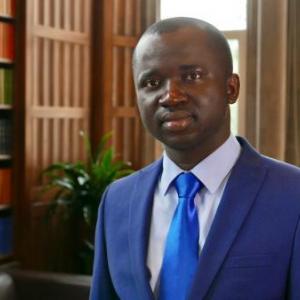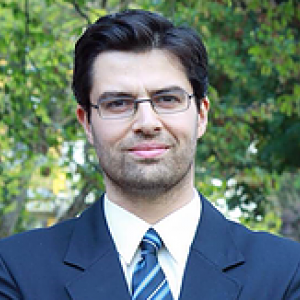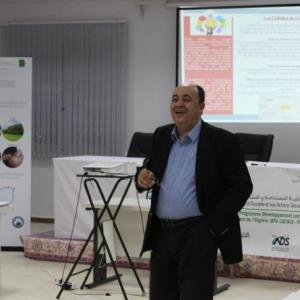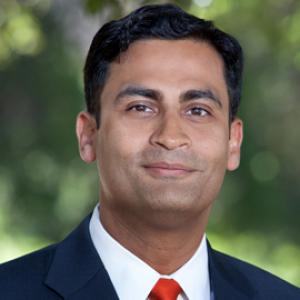Short description:
Sheheryar Banuri is a behavioral economist and an expert on motivation and incentives, behavior, and public policy. He is currently an Associate Professor in the School of Economics at the University of East Anglia in Norwich, UK. His work has provided policy guidance to the governments of Indonesia, the Philippines, and Burkina Faso. His work has been published in academic journals such as Social Science and Medicine, the European Economic Review, the World Bank Economic Review, and Social Choice and Welfare (among others).
Short description:
I am a research fellow at the Melbourne Institute: Applied Economic & Social Research at The University of Melbourne. My research interest is driven by how public policy improves the lives of vulnerable and disadvantaged populations. My work has focused on understanding some of the mechanisms of human capital formation, in particular associated to health, education and employment. I use quantitative techniques to study topics like cash transfer programs, child development, women in the labour market and maternal health.
Short description:
Lotanna Emediegwu is a lecturer in economics at the Manchester Metropolitan University. His research interests, which include environmental economics, climate econometrics, spatial econometrics, agricultural economics, health economics, and nonlinear modeling sit within the Future Economies Research Cluster of the University.
Short description:
Christian Djeffal is Assistant Professor for Law, Science and Technology at the Technical University of Munich. At the Munich Center for Technology in Society and at the TUM School of Governance, he researches and lectures on the relationship between law and technology, focusing on new technologies such as artificial intelligence (AI) and the internet of things (IoT). He works on different aspects of inclusion such as fairness, the protection of children and persons with disabilities.
Short description:
I am a Lecturer (Assistant Professor) in the School of Economics and Finance at the University of St Andrews.
I am also a member of the Institute of Legal and Constitutional Research and Centre for Global Law and Governance.
Previously, I was a Research Fellow in the Faculty of Economics at the University of Cambridge, a Max Weber Fellow in the Robert Schuman Centre and the Department of Economics at the European University Institute and a Marie Curie Research Fellow at the London School of Economics.
My research interests include Financial Regulation, Banking, Political Economy, Law and Economics, Economic History, Macro-Finance, International Macroeconomics and Finance.
Website: http://joaorafaelcunha.wixsite.com/home
Short description:
Maiyoraa is a PhD candidate whose research focuses on democratisation, conflict, nonviolent and violent mobilisation, and quantitative methods. Maya holds an MSc in International Relations from the University of Essex and a BA in Politics and Economics from the University of Nottingham.
Prior to starting her PhD studies, Maiyoraa worked at Demos, Britains leading cross-party think tank. She worked on a diverse range of topics, including inequalities, welfare reform, and local economic growth. Her work involved conducting qualitative and quantitative research shaping British public policy. Maiyoraa has also worked in the third sector on the Rohingya Crisis conducting research on malnutrition in refugee children. Her aim is to regain control of the untold narratives she, and others in the South Asian diaspora, have inherited from their ancestral home, which are all too often restructured through a western lens.
Short description:
Ian Gough is Visiting Professor in CASE (Centre for the Analysis of Social Exclusion) and an Associate of the Grantham Research Institute on Climate Change and the Environment, both at the London School of Economics. He is also Emeritus Professor at the University of Bath. His past books include The Political Economy of the Welfare State; A Theory of Human Need; Global Capital, Human Needs and Social Policies; Insecurity and Welfare Regimes in Asia, Africa and Latin America; and Wellbeing in Developing Countries. His latest book titled Heat, Greed and Human Need: Climate Change, Capitalism and Sustainable Wellbeing, was published in October 2017, preceded by a range of articles in academic journals including the Cambridge Journal of Economics and the Royal Society Philosophical Abstracts. He is now researching a set of related issues, including universal basic services, maximum income, a consumption ceiling, and inessential versus essential work.
Short description:
Expert pour l'Union Européenne Santé Sécurité au Travail et Ergonomie, Personnalité Compétente pour l'ANSES (Agence Nationale de sécurité Sanitaire de l'Alimentation de l'Environnement et du Travail France) et Médecin du Travail de formation, membre expert de la Commission Internationale de la Santé au travail (CIST/ICOH), je partage la Législation Européenne et Internationale (BIT/ILO) et mon expérience au quotidien dans le domaine médico-social et interviens en Conseil à l'International auprès des entreprises, cabinets d'expertise, organisations internationales et gouvernements.
Short description:
Garima Dhir is a Ph.D. in Development Economics from Indira Gandhi Institute of Development Research, Mumbai, India. In the past 10 years, she has worked in the capacity of an economist, researcher, and policy consultant within the corporate as well as government sector. Her major areas of interest and research include inclusion, public policy, skill development, education and international trade. She has published papers in various reputed national and international journals. Recently, her research work was published in the Economic Survey of India, 2019-20, released by the central finance ministry of India.
Short description:
Saumitra Jha is an associate professor of political economy at Stanford’s Graduate School of Business, and, by courtesy, of economics and of political science, and convenes the Stanford Conflict and Polarization Lab. He is also a senior fellow at the Center for Democracy, Development and Rule of Law within the Freeman-Spogli Institute for International Affairs and at the Stanford Institute for Economic Policy Research. In 2020–21, he is a fellow at the Center for Advanced Study in the Behavioral Sciences.
Jha’s research has been published in leading journals in economics and political science, including Econometrica, the Quarterly Journal of Economics, the American Political Science Review and the Journal of Development Economics, and he serves on a number of editorial boards. His research on ethnic tolerance has been recognized with the Michael Wallerstein Award for best published article in Political Economy from the American Political Science Association in 2014 and his coauthored research on heroes with the Oliver Williamson Award for best paper by the Society for Institutional and Organizational Economics in 2020. Jha was honored to receive the Teacher of the Year Award, voted by the students of the Stanford MSx Program in 2020.
Jha holds a BA from Williams College, master’s degrees in economics and mathematics from the University of Cambridge, and a PhD in economics from Stanford University. Prior to joining Stanford GSB, he was an Academy Scholar at Harvard University. He has been a fellow of the Niehaus Center for Globalization and Governance and the Center for the Study of Democratic Politics at Princeton University. Jha has consulted on economic and political risk issues for the United Nations/WTO, the World Bank, government agencies, and for private firms.










